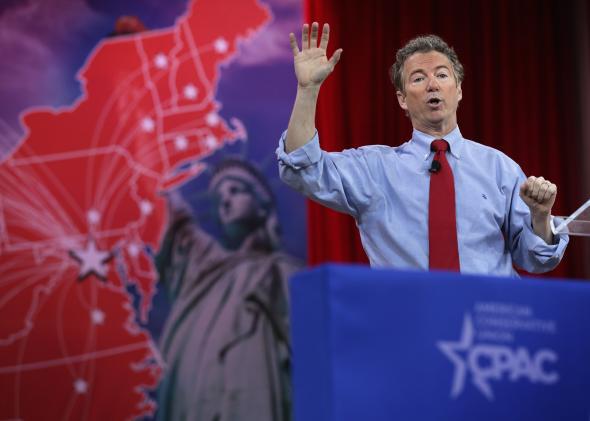Kentucky Sen. Rand Paul won the Conservative Political Action Conference for the third time in a row this year with 25.7 percent of the vote, while Wisconsin Gov. Scott Walker received 21.4 percent. It may be his third victory, but judging by the CPAC numbers, his star among the conservative base is waning. His support declined from last year, when he got 31 percent of the vote, reports Politico. The poll of the 3,007 conference attendees rarely serves as an indication of who will win the Republican nomination. But in this case, “Walker’s second place finish is another sign his popularity is surging amongst influential conservative activists,” notes NBC News.
Former Florida Gov. Jeb Bush, who isn’t particularly popular with the conservatives, tried to make a strong showing and poured money into sponsoring buses for supporters. But in the end he could only muster fifth place with 8 percent of the vote. Texas Sen. Ted Cruz came in third with 12 percent, and Ben Carson received 11 percent. Florida Sen. Marco Rubio, meanwhile, continues to see his popularity fall, taking seventh place with 4 percent of the vote, a marked decline from the 23 percent he received in 2013.
Looking so carefully at the numbers misses the larger picture, because CPAC really isn’t just a preview of the primaries. The Washington Post explains:
The event—which is sponsored by think tanks, conservative Web sites and influential interest groups like the National Rifle Association—is really more about theater, a forum for budding presidential candidates to road-test ideas. And in that regard, this year’s gathering did not disappoint.
Some of the excitement had to do with the fact that organizers changed the format of the event from previous years. Rather than just deliver speeches, candidates were expected to take questions from the audience—a twist that helped some candidates, but hurt others.
